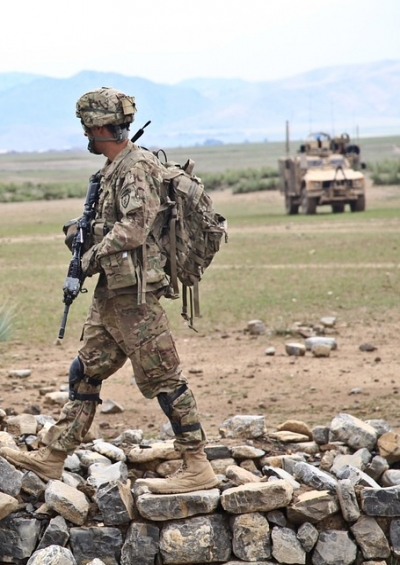North Macedonia: Progress in the Age of Nationalism
Why the prime ministers of Greece and Northern Macedonia may be on the road toward receiving the Nobel Prize for Peace.
February 12, 2019

NATO kept its promise to keep the door open. Since yesterday, the small country in the Western Balkans, North Macedonia was formally invited to become its 30th member.
The accession protocol signed by all 29 NATO members will be sent to the country’s parliaments for approval, a process that everyone is hoping to be finished by the end of 2019.
Significantly, Greece has become the first country to ratify the accession, a strong signal of political will and good neighborly relations, as well as a sign that could turn the tide in the much troubled region of the Western Balkans in a positive direction.
The end of a 27-year-old dispute
What may rightly seem as a petty issue to many, the decision to change the name from “Macedonia” to “North Macedonia” involved a 27-year-old name dispute between Skopje and Athens.
When Macedonia declared independence in 1991, the breakup of Yugoslavia was accompanied with a high surge of nationalism in the Balkans.
Greeks fiercely objected to its neighbor’s use of Macedonia, worrying that the newly born country was appropriating Greek history going back to Alexander the Great.
They feared it was claiming relations to the ancient Greek civilization of Macedonia, implying territorial ambitions over the northern region of Greece, fueled by the sort of nationalist claim of the first Macedonian constitution that the newly independent country was “a nation for all Macedonians.”
No wonder that the naming dispute between Skopje and Athens included almost three decades of confrontation and was emotionally charged on both sides.
While Greece used its veto power to stall the Euro-Atlantic integration of Macedonia, that country’s longtime corrupt leadership understood to make political use of it. It used it to explain the lack of reforms and the weak level of economic development.
The tide turned at the end of 2016 after the landslide victory of the anti-Gruevski coalition, when the new Prime Minister Zoran Zaev promised a new era for Macedonian politics.
Greece’s courage
The last several months were not easy ones for Athens and Skopje. Alexis Tsipras showed great resolve. The Greek parliament ratified the deal to rename the neighboring Macedonia, in a narrow victory with only 153 votes out of 300, despite big internal political turmoil and widespread public opposition.
It was a vote that split the governing coalition in Greece, and nearly toppled the Tsipras government.
The hope now is that a new page is being written for the Balkans. In Tsipras’ worlds: “The hatred of nationalism, dispute, and conflict will be replaced by friendship, peace, and cooperation.”
In an era when European politics is being reshaped by the resurgence of nationalism and fevers of public discontent, it seems that European politicians can take some lessons about political vision from the Balkans.
The lesson coming from the Balkans is that timing and strategic vision is everything. Not surprisingly, Tsipras and Zaev are candidates to receive the Nobel Prize, following the example of the EU in 2012.
A victory of the West
Future NATO membership of North Macedonia, which had been waiting for it since 1999, places the country under an umbrella of stability and security, in a region that still has many pockets of uncertainty.
North Macedonia’s membership to NATO is also a setback for Russia. The nefarious ways in which it sought to interfere in the name-changing process, including in Greek politics, had not paid off.
The end of the name dispute between Skopje and Athens is a victory for NATO, but also for the European Union. NATO membership should be followed by another prize, the EU.
As the recent history of post-Cold War Europe teaches us, membership in the political-military alliance of NATO has often been followed with membership into the economic and political alliance of the European Union.
The upcoming June European Council Summit that will discuss also enlargement of the Western Balkans should not repeat the mistake of last’s years missed opportunity to move the enlargement process into the much deserved political level from the current technical one.
Of course, this is easier said than done taking into consideration the upcoming European Parliament elections that might change the current optimism for the future of the Balkans.
It goes without saying that the biggest burden of undertaking serious political and economic reforms relies with leaders and government in the region. They have to act soon to have a realistic chance for success.
Takeaways
The prime ministers of Greece and Northern Macedonia may be on the road toward receiving the Nobel Prize for Peace.
In an era when European politics faces resurgent nationalism, politicians can learn lessons about political vision from the Balkans.
Membership of the political-military alliance of NATO has often been followed with membership of the EU.
Future NATO membership of North Macedonia places the country under an umbrella of stability and security.
